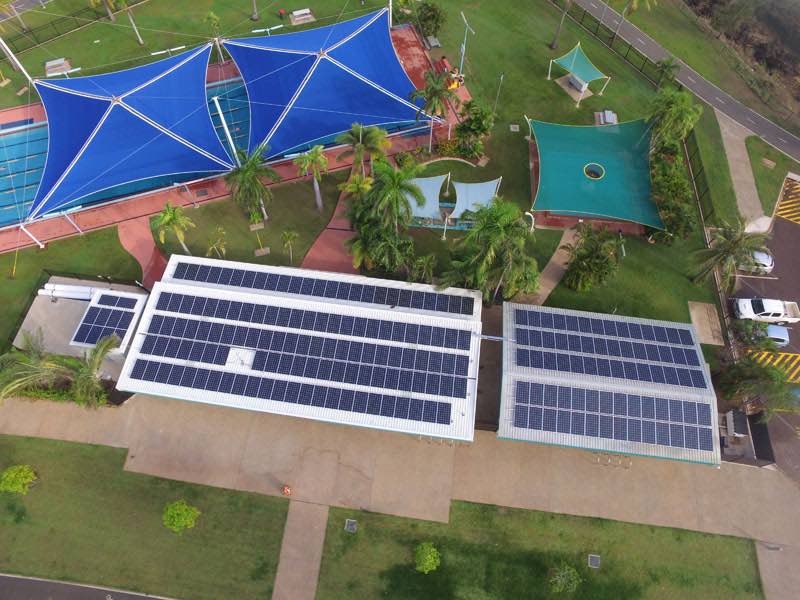

The Northern Territory government has announced a new Household and Business Battery Scheme (HBBS) that will deliver a $6,000 grant for households and businesses to install a battery storage unit of at least 7kWh and reduce the amount of power they need to purchase from the grid.
The announcement on Sunday came at the same time as commitment to build a $30 million big battery to stabilise the Darwin-Katherine grid and reduce the amount of gas burned as “spinning reserve”, and is seen as a key part of the territory’s move towards Labor’s target of 50 per cent renewables by 2030.
Chief minister Michael Gunner and renewables and energy minister Dale Wakefield say the government will commit an initial amount of $800,000 for the battery storage scheme, funding grants for about 130 batteries, and said it was a key part of their response to the economic impact of the Covid-19 pandemic.
“Our new $6000 solar and battery grants will see even more Territorians choose the sun and lower power prices – and create more jobs,” Gunner said in a statement.
“Doing whatever it takes to save lives from coronavirus means throwing the kitchen sink at saving jobs and preparing the Territory for the rebound. I’m backing Territorians, solar and lower prices to get it done – we have a bright future if we all stick together.”
Wakefield said applications for the $6000 grants will open on Tuesday April 14. However, batteries and inverters will no longer be eligible for grants under the new Home Improvement Scheme or the Business Improvement Grant.
The battery storage initiative is being funded by a change to the feed-in-tariff, with the current “one-for-one” – tariff that offered the same amount for importing as for export, but did little to encourage battery storage – replaced by a new standard tariff of 8.3c/kWh for exports back to the grid.
The new FiT will apply to all new businesses and households with behind-the-meter solar installations of up to 30kW in size.
All businesses and households who currently receive the premium one-for-one FiT will continue to do so. They will only surrender the premium FiT if they upgrade the capacity of their system, move premises or take advantage of the battery subsidy.
“Reforms to the FiT to encourage the take-up of batteries by households and businesses was a recommendation of the Road Map to Renewables report commissioned by the Government,” Wakefield said in a statement.
However, solar industry insiders in NT said the government had missed an opportunity because the road to renewables report suggested a time-of-day tariff to incentivise people to put in batteries, and discourage consumption in the 5pm to 9pm peak.
Giles Parkinson is founder and editor of One Step Off The Grid, and also edits and founded Renew Economy and The Driven. He has been a journalist for 35 years and is a former business and deputy editor of the Australian Financial Review.

